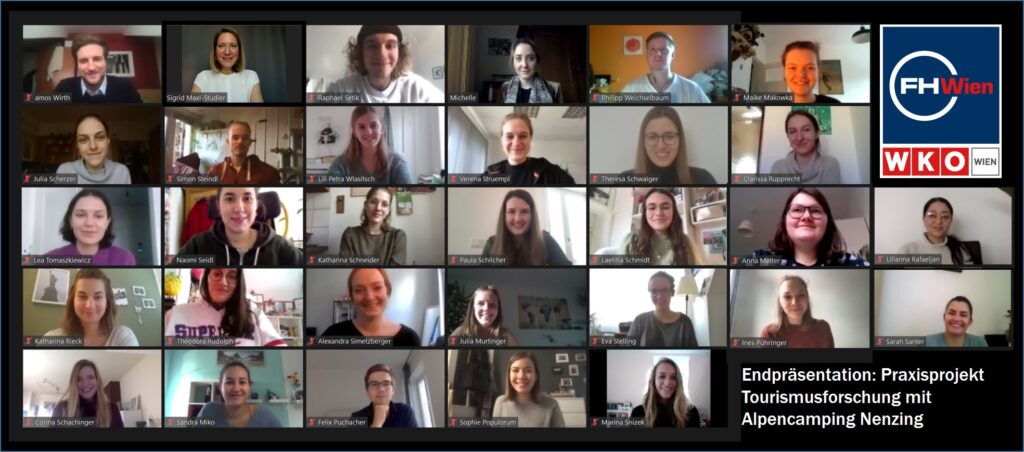What attitudes and motives do travellers have towards camping and glamping? And how were these forms of holiday discussed in the media? Bachelor’s students from the study program in Tourism Management found answers to these questions from project partner “Alpencamping Nenzing”.
The course “Practical Tourism Research Project” is always a study highlight when it comes to applying research-know-how and cooperating with real partners and institutions. During winter semester 2020/21, students focused on camping and glamping and worked on a project in cooperation with Michelle Morik from Alpencamping Nenzing.
The term glamping stands for the word combination “glamorous camping”. It refers to luxurious or innovative rental accommodation on campsites, usually paired with upscale service. These accommodations and the surrounding nature are also the main photographic motifs that accompany media reports on glamping. COVID-19, on the other hand, was not a major content of camping or glamping reports in the period July 2019 to 2020.
If we look at the results of the online survey – conducted in November 2020 among 680 people, especially from the Vienna/Lower Austria area – Corona shows a great influence on travellers. While 38 % of the respondents booked their holiday three to six months before the outbreak of the pandemic, only 8 % have done so since Corona. Currently, 36 % of respondents say they book their holidays mostly spontaneously or not at all in advance.
12 % of all respondents are MORE interested in camping or glamping since Corona than before. The reasons for this are fewer crowds, lots of fresh air, less risk of infection and financial aspects. Interest has increased especially among respondents between the ages of 36 and 45.
And what do the respondents think of glamping? Around 80 % of the participants associate it with more privacy than on conventional campsites. More than 70 % have no experience with this form of holiday, but 54 % can imagine glamping very well or well in the future.
The teaching sessions ended in an imaginative, results-oriented and inspiring way with final presentations by the students and Michelle Morik from Alpencamping Nenzing. We offer you a big thank you!
